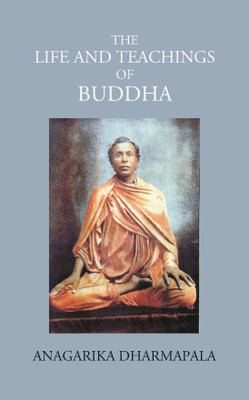THE LIFE AND TEACHINGS OF BUDDHA(Hardcover, ANAGARIKA DHARMAPALA)
Quick Overview
Product Price Comparison
About the book:-The words and example of Gautama (often known by the title, 'Buddha') have affected billions of people. But what do we really know about him? While there is much we cannot say for certain about the historical Gautama, this persuasive book provides the fullest and most plausible account yet. Weaving ancient sources and modern understanding into an engaging narrative, the author examines Gautama's words and impact to shed fresh light on his culture, his spiritual search and the experiences and teachings that led his followers, to call him 'The Awakened One'. This book draws on the myths and legends that surround him to illuminate the significance of his life. It traces Gautama's investigations of consciousness, his strikingly original view of life and his development of new forms of religious community and practice. His insightful and thought-provoking biography will appeal to anyone interested in history and religion, and in the Buddha as a thinker, spiritual teacher and a seminal cultural figure. It is a compelling account of one of history's most powerful personalities. It is sometimes seen as more of a philosophical system than a religion, because it does not have core beliefs about a creator god or gods. Additionally, it is different from the other world faiths in that its founder, Siddhartha Gautama, did not have a mystical vision, nor a revelation from a higher being. Instead, he based his teachings on conclusions he drew after a very long period of deep thought, reflection and experience. About the Author:-Anag─ürika Dharmap─üla (1864 ŌĆō 1933) was a Sri Lankan Buddhist revivalist and a writer. Along with Henry Steel Olcott and Helena Blavatsky, the creators of the Theosophical Society, he was a major reformer and revivalist of Sinhala Buddhism and an important figure in its western transmission. He also inspired a mass movement of South Indian Dalits including Tamils to embrace Buddhism, half a century before B. R. Ambedkar. In his later life, he


